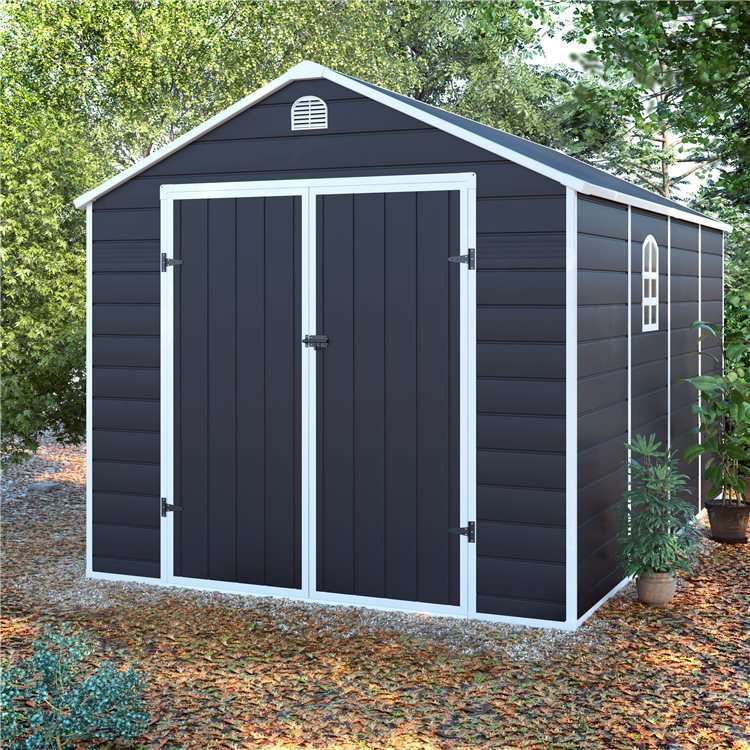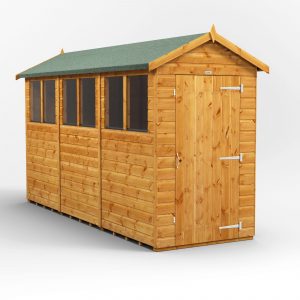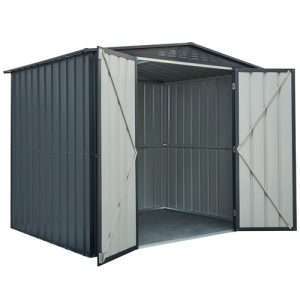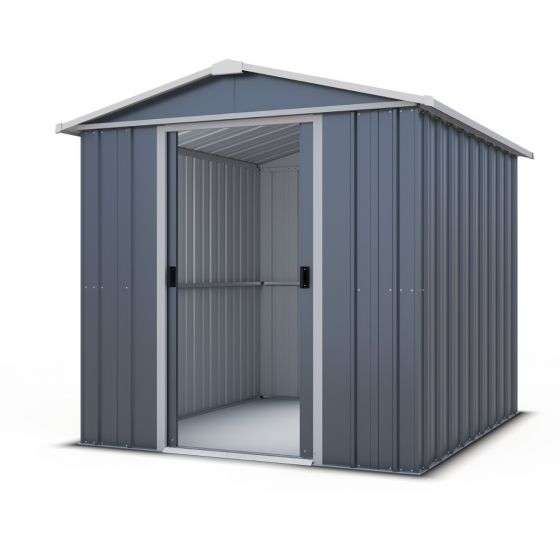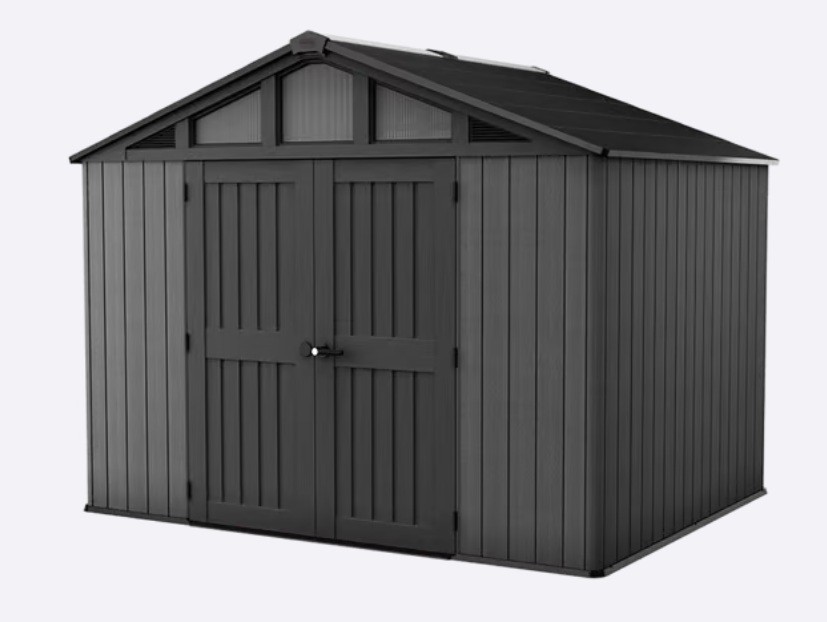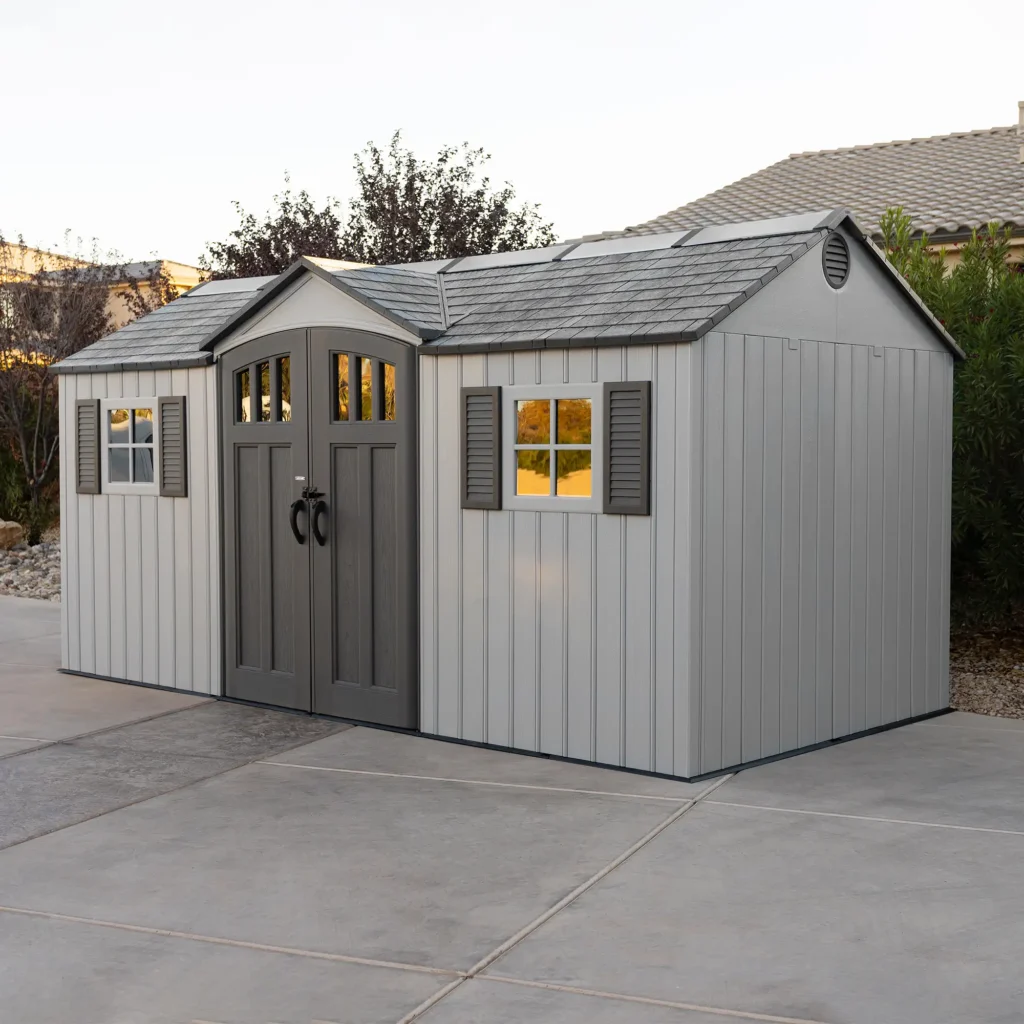Looking for a garden shed
Looking for a garden shed
The best sheds provide a stable, waterproof and secure home for your gardening supplies. Some even make for a cosy office, letting you focus on your work without distraction. Our expert guide explains everything you need to know when shopping for a shed.
When picking the perfect shed for you, it pays to do your research. The worst sheds are inaccessible, damp and flimsy, so make sure you know the differences between the types on offer. Below, we’ve compared wooden sheds, metal sheds and plastic sheds, also revealing how much you should expect to pay for a good one.
Keep scrolling for expert advice on shed features you should look out for, plus guidance on how to build and maintain your garden shed so it lasts for years to come.
Types of sheds compared
Pros: Plenty of choice, versatile, can assemble at home, easy to repair, stays cool in warm weather, stays warm in cool weather
Cons: Most need to be treated regularly, typically less secure
As a popular option in the UK, there are plenty of different shapes and sizes of wooden sheds to choose from.
Wooden sheds are typically made from softwoods – usually pine (sometimes referred to as redwood or red deal) or spruce (white deal). Some are larch or Douglas fir and, in theory, these should be slightly more resistant to rot. Most rot-resistant of all are cedar sheds, but these are almost twice the price of pine ones.
To keep a wooden shed in good condition and free from rot, you’ll need to give it a treatment every year. Doing so can be pricey, so you might consider picking a shed that’s been pressure treated. If you’re handy, you could even build and personalise your wooden shed yourself.
Pros: Affordable options, maintenance-free, durable (won’t rot or get eaten by insects)
Cons: Usually no floor, can be tricky to assemble, might rust over time, temperature will change with the weather, needs a built-in ventilator to combat condensation
Metal sheds are made from either steel or galvanised aluminium and can really vary in quality. Cheaper options made with thin panels can be extremely flimsy, while higher-quality metal sheds will be strong, less prone to rust and more secure.
Once they’ve been assembled, metal sheds won’t really need any maintenance, bar the odd bit of grease on the door hinges.
However, when it’s warm the inside temperature of the shed will quickly rise making them a poor choice for home offices or working sheds.
Pros: Light, durable (rot and rust-free), maintenance-free, easy to assemble
Cons: Flimsy, hard to customise, limited shapes and sizes, hard to secure, not environmentally friendly, not breathable (temperature will change with the weather)
Made from vinyl, plastic sheds are typically very light. This is perfect if you’re moving the shed around the garden (or for lifting to assemble) but not so helpful in stormy weather. Opting for a shed with ground anchors should help keep it sturdy.
Plastic sheds are maintenance free, durable and easy to assemble – most panels will snap into place. They are becoming more popular, although note that they can be tricky to customise and you won’t have loads of options on sizes and shapes.
Other types of sheds
Potting sheds – feature a large sloping window made of thin glass or plastic, to allow heat and light to travel through.
Lean-to sheds – lean against a solid structure such as a house or garden wall. Ideal if you’re low on space.
Corner sheds – designed to sit in the corner of the garden.

